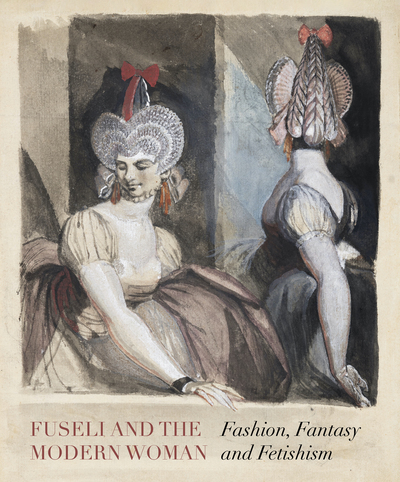- EAN13
- 9781913645298
- Éditeur
- Paul Holberton Publishing
- Date de publication
- 2 décembre 2022
- Nombre de pages
- 160
- Dimensions
- 26 x 21,7 x 1,5 cm
- Poids
- 610 g
- Langue
- fre
Fuseli And The Modern Woman, Fashion, Fantasy, Fetishism
Beyer/Fend/Gottardo
Paul Holberton Publishing
Prix public : 35,00 €
This catalogue accompanies the first exhibition devoted to a fascinating group of drawings by the Anglo-Swiss Henry Fuseli (1741–1825), one of eighteenth-century Europe’s most idiosyncratic, original and controversial artists. Best known for his notoriously provocative painting The Nightmare, Fuseli energetically cultivated a reputation for eccentricity, with vividly stylised images of supernatural creatures, muscle-bound heroes, and damsels in distress. While these convinced some viewers of the greatness of his genius, others dismissed him as a charlatan, or as completely mad. Fuseli’s contemporaries might have thought him even crazier had they been aware that in private he harboured an obsessive preoccupation with the figure of the modern woman, which he pursued almost exclusively in his drawings. Where one might have expected idealised bodies with the grace and proportions of classical statues, here instead we encounter figures whose anatomies have been shaped by stiff bodices, waistbands, puffed sleeves, and pointed shoes, and whose heads are crowned by coiffures of the most bizarre and complicated sort. Often based on the artist’s wife Sophia Rawlins, the women who populate Fuseli’s graphic work tend to adopt brazenly aggressive attitudes, either fixing their gaze directly on the viewer or ignoring our presence altogether. Usually they appear on their own, in isolation on the page; sometimes they are grouped together to form disturbing narratives, erotic fantasies that may be mysterious, vaguely menacing, or overtly transgressive, but where women always play a dominant role. Among the many intriguing questions raised by these works is the extent to which his wife Sophia was actively involved in fashioning her appearance for her own pleasure, as well as for the benefit of her husband. By bringing together more than fifty of these studies (roughly a third of the known total), The Courtauld Gallery will give audiences an unprecedented opportunity to see one of the finest Romantic-period draughtsmen at his most innovative and exciting. Visitors to the show and readers of the lavishly illustrated catalogue will further be invited to consider how Fuseli’s drawings of women, as products of the turbulent aftermath of the American and French Revolutions, speak to concerns about gender and sexuality that have never been more relevant than they are today. The exhibition showcases drawings brought together from international collections, including the Kunsthaus in Zurich, the Auckland Art Gallery in New Zealand, and from other European and North American institutions.


















